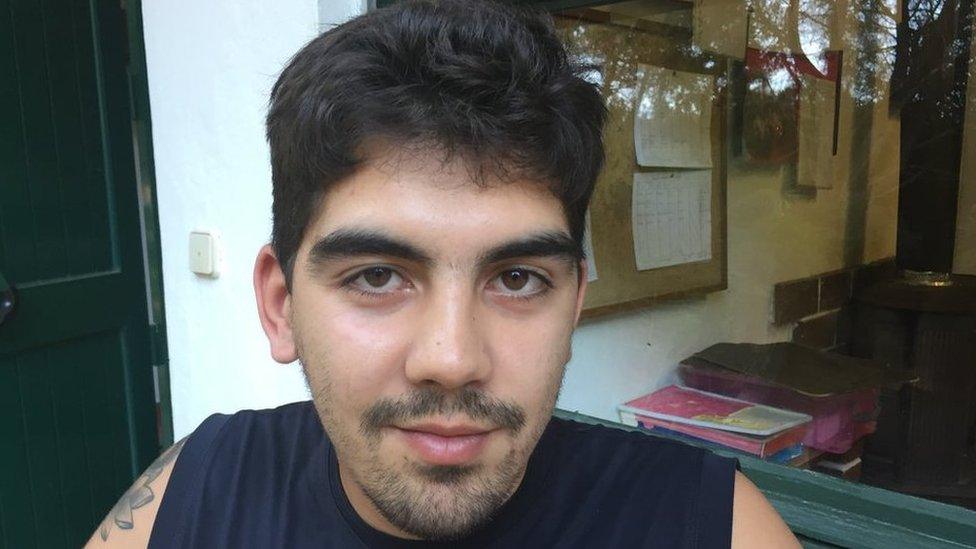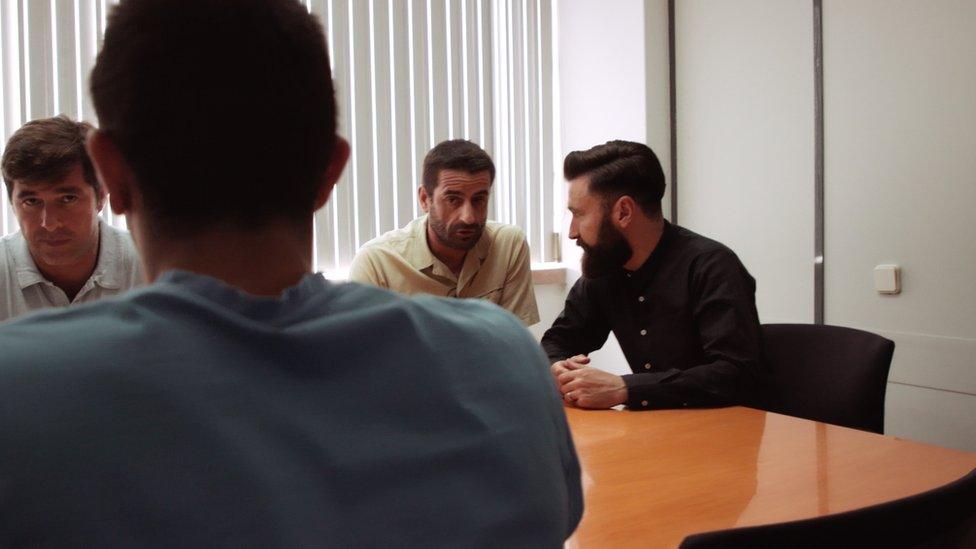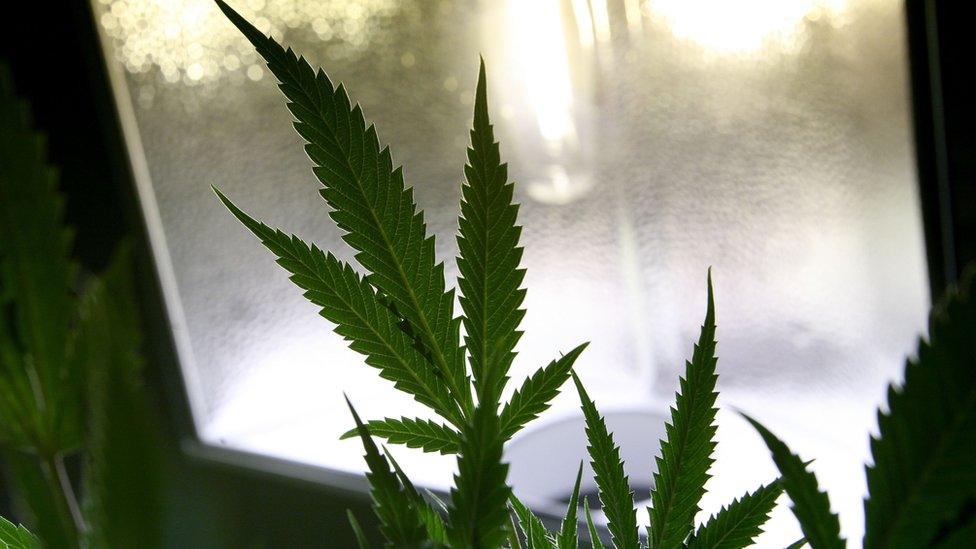What Portugal's lenient drug laws mean for cannabis users
- Published

Andrea is at a residential rehab clinic in Portugal and says his drug problems began with cannabis.
He believes the country's system, which decriminalises all drugs for personal use, added to his struggles.
"You go on the streets and it is very easy to find," he tells Newsbeat. He's since used a number of substances ranging from cocaine to psychedelic drugs, like LSD.
"I started having psychiatric issues and ended up in hospital."
Portuguese statistics suggest drug use there is lower, per person, than in the UK and death rates connected to hard drugs like heroin fell after decriminalisation.
But Newsbeat also saw open drug use on streets in popular tourist areas while we were there.
We debate the legalisation of cannabis on Tuesday on Radio 1 at 9pm.
"At first I had problems with hashish and then I started going to trance parties, and went onto other drugs and then later onto cocaine," the 23-year-old explains.
He tells Newsbeat that "cannabis really busts your head" and led to him trying LSD.
"I hear voices in my head and that is very bad. It tormented me for a few years."
He is not sure if his country's drug policy worked for him.
"It is good, but a strict approach is good too."
Andrea says his treatment is now working well and that he plans to finish his education and join the army.
'They are not saying that I am crazy or stupid'
Ricardo has also experienced the Portuguese drug system first hand.
The 21-year-old student, a pizza delivery driver, was caught with three cannabis joints going into a festival.
Instead of being punished he went in front of a "dissuasion commission" - where his drug use was treated as a medical problem.
The first step for Ricardo was to talk for 30 minutes with a psychiatrist.
"They asked me if I consumed lots or not and if I am a normal person or an addict," he tells Newsbeat.
"I explained to him my life and my work and studies and all the things I want to do with my life.
"He was nice and talked to me and tried to explain how things will be from now.
"The psychiatrist was very nice and talked to me normally and just wanted to understand me. I think it was cool."

We sat in on his Ricardo's case, lasting less than 10 minutes
He tells Newsbeat that he'd only been taking cannabis for a few months - and he didn't believe he had a problem with the drug.
After the session he was warned he could be fined in future, but then allowed to leave.
"I have only been trying for a few months so I am not addicted so I will stop. I don't need it," he told Newsbeat.
His conversation with the psychiatrist seemed to have had the biggest effect on him.
"They are not coming to me and saying that I am crazy or stupid," he says.
"I think the system in Portugal is the best because a person doesn't get punished for one mistake, that can be end up being a life sentence."

The government says it is aware of different approaches being taken abroad but is not changing how things are done in the UK.
"It is overly simplistic to say that legalisation works," a Home Office spokesperson tells us.
"The government has launched a new strategy which takes a balanced approach across four strands - reducing demand, restricting supply, building recovery and global action."
Cannabis is a class B drug and carries a maximum prison sentence of five years for possession and up to 14 years for supply and production.
You can also receive an unlimited fine for possession, supply or production.
You can help and information about drugs on these BBC Advice pages.
Find us on Instagram at BBCNewsbeat, external and follow us on Snapchat, search for bbc_newsbeat, external